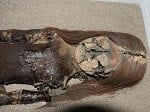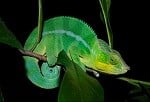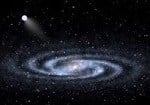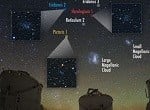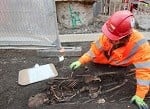Most powerful ever rocket booster tested successfully by NASA
In a successful test on Wednesday, NASA fired the most powerful rocket booster ever built for two minutes, producing 3.6 million pounds of thrust....
Total solar eclipse – Faroe Islands hotels fully booked for March 20
Authorities in the Faroe Islands, located between Norway and Iceland, say all its hotels, bed & breakfasts and hostels are fully booked for 20th...
Anthropocene, new geological epoch driven by humans started in 1610
Scientists have been wondering how to define ‘Anthropocene’, the current geological age when human activity became a dominant influence on Earth’s climate and environment,...
Mummies turning into black slime due to climate change, say Harvard scientists
Perfectly-preserved mummies dating as far back as 5050 BC have been degrading rapidly over the past ten years, gradually turning into black slime, say...
Chameleons accomplish vivid colour changes by rearranging crystals inside skin cells
Chameleons rearrange crystals inside specialised skin cells to accomplish their complex and rapid colour changes during social interactions and camouflage strategies, scientists at the...
Ultra-fast star hurtling at 745 miles per second through Milky Way discovered by Queen’s...
A star whizzing through the Milky Way at 745 miles per second (1,200 kps) has been discovered by astronomers at Queen’s University Belfast and...
Nine dwarf galaxies a million times smaller than the Milky Way found orbiting our...
American and British scientists have independently discovered a total of nine tiny dwarf satellite galaxies orbiting the Milky Way, our home galaxy. They say...
Bedlam excavation to examine 3,000 skeletons for plague bacteria strain
London’s first municipal burial ground, Bedlam, dating from 1569 to 1738, is being excavated by archeologists before Liverpool Street Station's ticket office is built...
Goldilocks planet GJ 581d does exist, your method was flawed, say UK scientists
There is a planet 20 light years away in the ‘Goldilocks Zone’ that scientists refer to as GJ 581d. In 2014, astrophysicists said it...
Beautiful Eurasian Lynx back in Britain after 1300 year absence
The beautiful Eurasian Lynx could be living in the wild in British woodlands after being driven to extinction 1300 years ago if Lynx UK...




